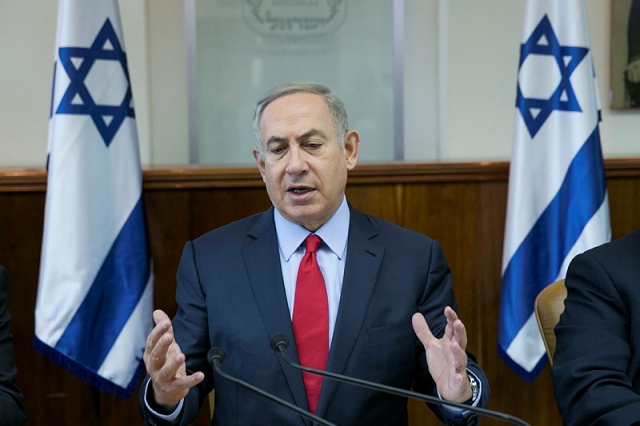Ahead of his visit to Kazakhstan, Singapore, Australia and Azerbaijan in the coming three months, Israeli Prime Minister Benjamin Netanyahu touted Israel’s expanding ties with a growing number of nations around the world – some of them Muslim.
Prime Minister Benjamin Netanyahu praised Israel’s developing diplomatic ties with many countries across the globe, attributing it to the world’s appraisal of Israel’s “economic and technological strengthening” and its demand for Israel’s “security and intelligence capabilities.”
Netanyahu is slated to visit Kazakhstan, Singapore, Australia and Azerbaijan in the coming three months. For the first three countries, it will be the first visit by an Israeli premier. Netanyahu briefly visited Azerbaijan, a mostly Muslim country, in 1997.
President Reuven Rivlin will leave on a visit to India in two weeks, a continuation of the Indian President’s visit to the Jewish State last October.
Furthermore, next month will see a visit to Israel by the Polish government for a joint session with Israel’s cabinet.
Israel’s international relations are likewise developing in Asia, Latin America and most recently in Africa.
“We are aware that this development stems from the economic and technological strengthening of Israel on the one hand and our security and intelligence capabilities on the other,” Netanyahu stated. “Both of these facilitate the development and flourishing of our international relations.”
While affairs are progressing positively in the international arena, Israel has still many challenges to face, Netanyahu pointed out.
“This is not to say that we will not be challenged in international forums, like we saw in the scandalous UNESCO decisions, and it is likely that this will continue at the UN, but there is no doubt that even in international institutions, even in these scandalous votes, we have seen a change.”
He was relating to the recent vote by United Nations Educational, Scientific and Cultural Organization (UNESCO) resolution which ignores Judaism’s connection to the Temple Mount in Jerusalem. While Israel lost the vote, it gained diplomatic support through fierce work by Israel’s diplomatic corps.
Netanyahu thanked the president of Tanzania for “taking a stand” along with the Croatian representative in the vote.
“In effect, they torpedoed the practical effect of the second UNESCO decision by preventing consensus,” he explained. “This is an additional indication of the major change that is taking place in Israel’s global relations, in direct proportion to Israel’s strength.”
Several countries have voiced opposition to the recent string of UNESCO motions denying the Jewish bond to Jerusalem, including the US, the Czech Republic, Italy and even UNESCO’s Director-General Irina Bokova.
By: Aryeh Savir, World Israel News


